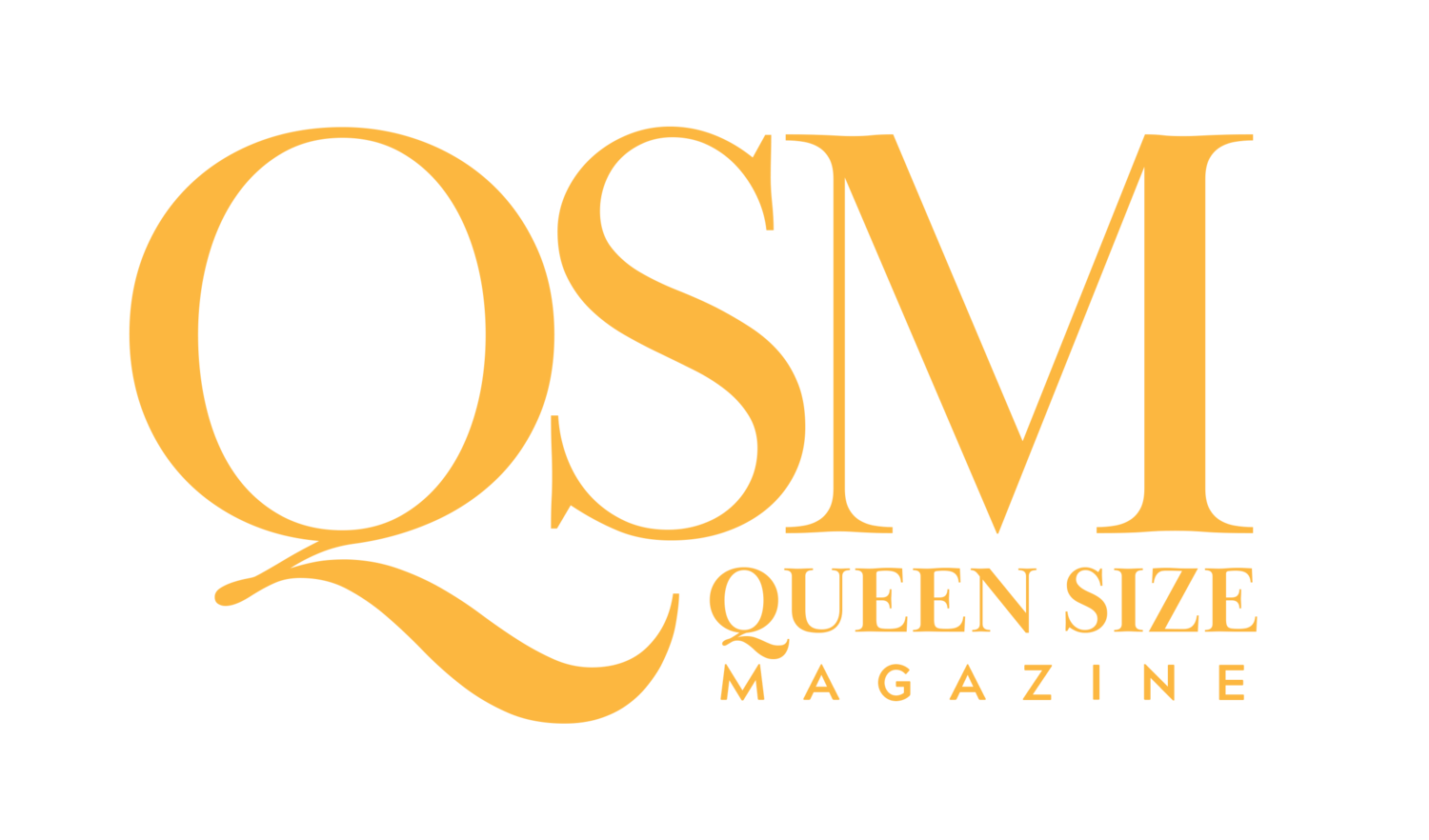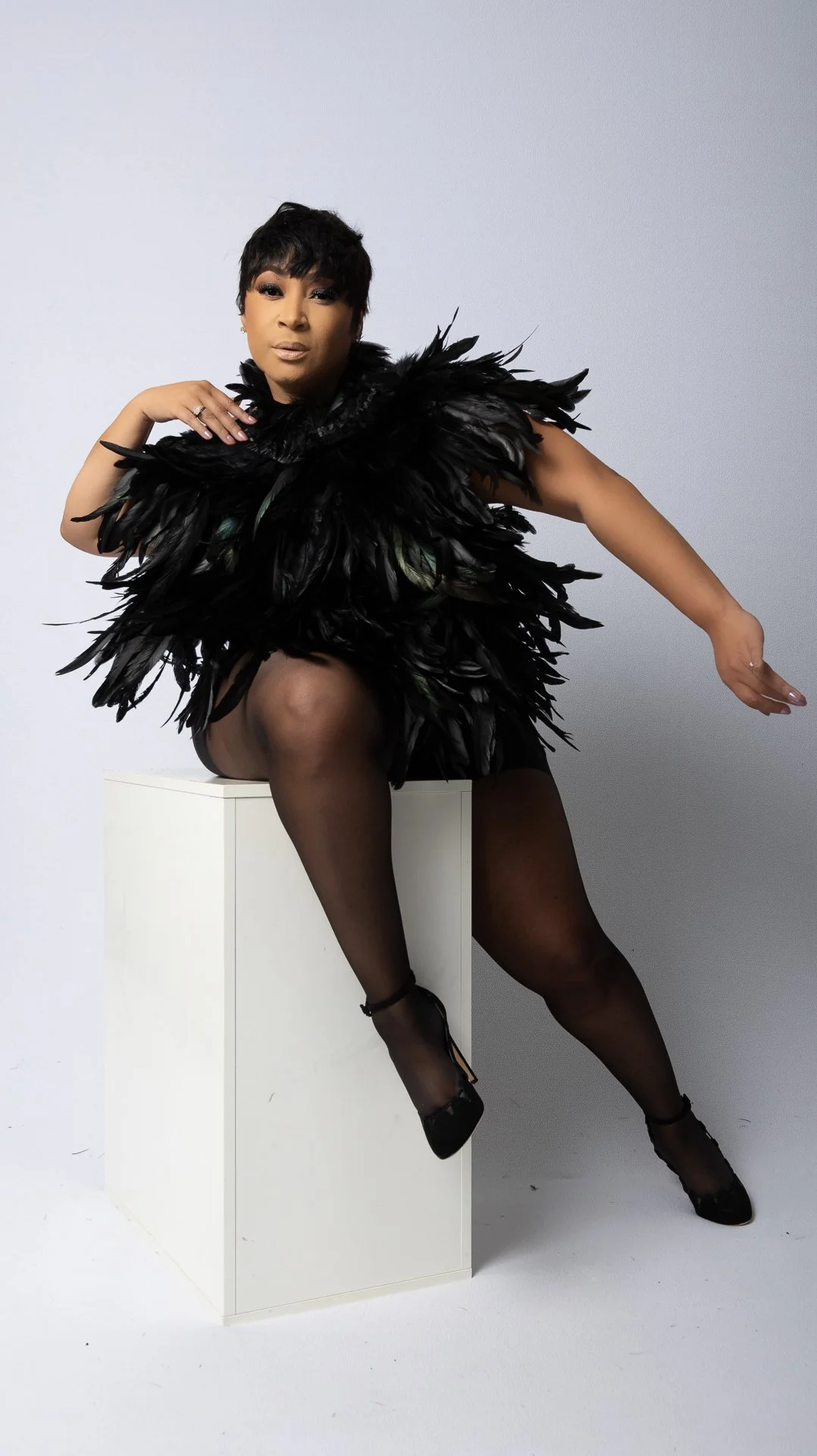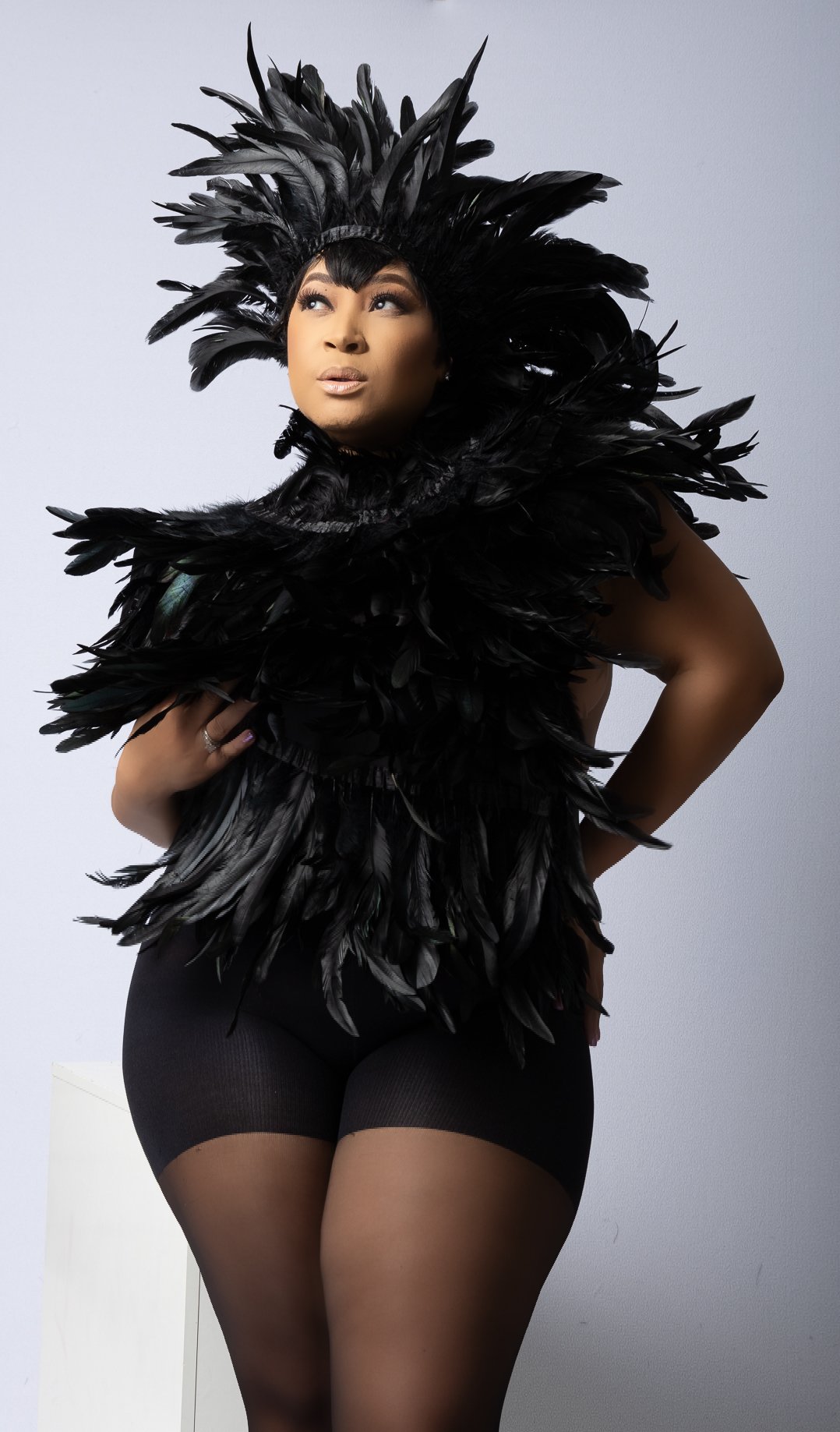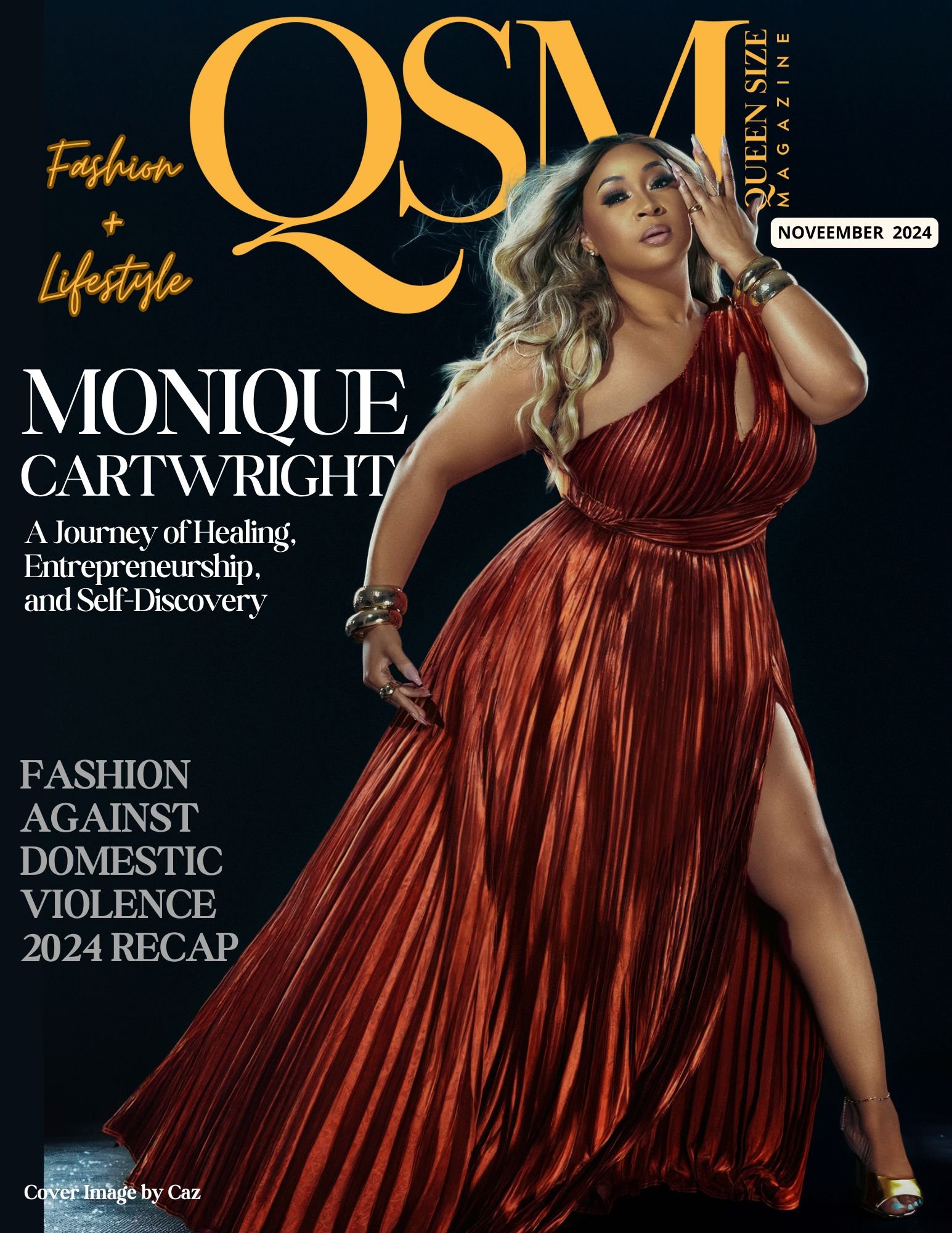A JOURNEY OF HEALING, ENTREPRENEURSHIP, AND SELF-DISCOVERY
THE STORY OF MONIQUE CARTWRIGHT
Monique Cartwright’s journey to self-empowerment and healing is one defined by resilience, introspection, and an unyielding drive to embrace her authentic self. Her story, spanning decades, reveals the evolution of a woman who has faced profound personal loss, internalized societal stigmas, and ultimately emerged as a beacon of hope and inspiration for others.
At just 11 years old, Monique experienced a heartbreaking loss. Her family told her that a loved one had passed away from cancer—a carefully crafted story to shield her from the reality of AIDS, a disease that carried a formidable stigma in the early 90s. It wasn’t until she was 17 that Monique uncovered the truth. The revelation was a jolt to her system, and her initial reaction was to retreat into silence. In that era, AIDS was not just misunderstood but often viewed through a lens of fear and judgment. To protect her family and herself from societal scrutiny, Monique kept the truth locked away, a decision that weighed heavily on her for years.
Through her teenage years and into her twenties, Monique remained silent, carrying a burden that affected her mental and emotional health. The stigma surrounding AIDS fueled her sense of isolation, and it was only in her late twenties that she found the courage to confide in someone close about the real cause of her loved one’s death. This first step in opening up was transformative; she realized that staying silent had not protected her loved one’s memory or her family—it had only deepened her own wounds.
In her thirties, Monique was finally ready to seek the whole story of her loved one’s life. She reached out to friends and family who had been close to them in their final days, uncovering the hardships and traumas they had endured, both from the disease and from society. Through learning about their struggles, Monique found a way to process her own grief and begin to heal. She also educated herself on the advancements in HIV/AIDS awareness and treatments, eventually finding empowerment in knowledge.
But it was her milestone 40th birthday that marked a turning point. Monique committed to leaving behind the pain, guilt, and shame she had carried for so long. She decided to use her voice to advocate for families affected by AIDS, particularly those like herself who had struggled in silence. Embracing her role as an advocate has become central to Monique’s life, and she now works to dismantle the stigma that once held her captive, offering support to others walking similar paths.
Alongside this journey, Monique also pursued a longtime dream of launching her own boutique. During the pandemic, Monique’s work as a brand ambassador sparked a realization: she had the skills and platform to build something of her own. With the support of her husband and a newfound sense of courage, she took the leap, establishing an LLC and planning the boutique she had envisioned for years. With her boutique set to launch in 2025, Monique is excited to offer classy yet sexy pieces, with a focus on swimwear for curvy women—a nod to her self-proclaimed title as the “Swimsuit Queen.”
The journey of self-discovery didn’t stop there. In 2018, Monique encountered a pivotal moment in her career as a model. Through a connection in the music industry, she realized she could be her own brand. This insight inspired Monique to take steps toward building a professional presence, creating a logo, and fully embracing her identity as a business. With this new perspective, she now leads model workshops focused on branding, offering guidance to those navigating the world of modeling with the kind of knowledge she wished she’d had at the start.
For Monique, the journey to self-acceptance and achievement has been one of continuous growth. She acknowledges her insecurities and doubts but remains steadfast in her belief that each step forward, each new venture, brings her closer to fulfilling her dreams. “What’s meant for me is mine, and I’m coming for it,” she says, a testament to her indomitable spirit.
Monique Cartwright’s story is not just her own; it’s a message to anyone facing the weight of silence and stigma. Her resilience and dedication have turned her pain into purpose, illuminating a path forward not only for herself but for others in need of healing, empowerment, and inspiration. As she steps into the future, Monique is fully prepared to leave her mark on the world, driven by the lessons of her past and the boundless potential of her dreams.
QSM: Can you tell us about the moment when you discovered the truth about your loved one’s passing, and how it affected your view on both grief and AIDS?
Monique: I was riding in a car when the conversation came up, and it was finally revealed to me how my loved one died. I was in shock and disbelief, hurt that after all these years, I had been lied to. I’ve always struggled with grief and death, and finding out it was AIDS made it even harder. Initially, I was angry—angry that my loved one had contracted it and left my family to face the stigma, the looks, and whispers. For a long time, I coped by avoiding both grief and the topic of AIDS altogether. But as I grew older, I began to educate myself on the AIDS epidemic and gained a deeper understanding of what happened.
QSM: How did carrying the secret of your loved one’s AIDS diagnosis impact your mental health and relationships over the years?
Monique: Hell, I thought everyone had secrets… skeletons in the closet. Which most of us do but trusting others after that was extremely hard to do. Let’s just say my mental was shot back then and I could have used some therapy but that was also taboo back then, and to this day I still have trust issues to a certain extent. Continuous therapy for me over the years has made a tremendous impact on my mental health and how I deal with trust in my relationships. I am not perfect by any means and therapy is still needed and that's okay. I am dealing with it in a healthy way now.
QSM: What were some of the biggest challenges you faced in confronting the stigma around AIDS in your family and society?
Monique: I think the biggest challenge for me was realizing that it felt like everyone knew this secret except me. At family gatherings, I could feel the looks, and it was hard to process. Back then, in the Black community, AIDS was such a taboo topic—no one talked about it, let alone being close to someone who died from it. AIDS was a scary word, something you just didn’t mention. Being so young at the time, my biggest struggle was not having the space or ability to express how I was feeling.
QSM: When you began seeking out people who had been close to your loved one, what were some of the insights you gained about their experience with AIDS that changed your perspective?
Monique: When I started talking to people close to my loved one, I learned how extraordinary and selfless they were—always willing to help others, the life of the party, with a strong circle of family and friends. Even after contracting AIDS, they didn’t give up; they wanted to live life fully until the end. I was told that, back then, people didn’t know much about AIDS, and their diagnosis came as a complete shock. It wasn’t about being reckless, as I had assumed for so long. For years, I thought they were being careless, but learning the truth gave me a deeper understanding of both AIDS and my loved one’s life choices.
QSM: How has learning about the advances in HIV/AIDS treatment and awareness over the years helped in your personal healing process?
Monique: Honestly, I felt jealous and angry that advancements in treatment weren’t available in time to save my loved one. I resented the idea that if you were wealthy or a celebrity, you had a better chance at survival, while regular people like my loved ones were left behind. It felt so unfair. But over time, I had to come to terms with the fact that, with every disease or pandemic, lives are lost to pave the way for the survival of others in the future. Now, when I see AIDS commercials and medications that allow people to live, I think about how my loved one’s death helped make that progress possible.
QSM: You’ve mentioned wanting to apologize to your loved one for not understanding sooner. If you could speak to them now, what message would you share?
Monique: I would apologize for the hurtful things I said and how I viewed you, seeing you as selfish and uncaring toward the family. For a time, I even felt like you got what you deserved, and I have to be honest about that part I did think this for a while. When you've been lied to, gossiped about within the family, and denied a proper space for grief, those feelings were my reality. But as I’ve grown older and educated myself more about your life and AIDS, I would definitely offer an apology. Yet, I don’t think it’s necessary because I believe in spirits, and I trust you understood what I was going through back then and knew that one day I would learn and find forgiveness.
QSM: In your journey toward advocacy for families affected by AIDS, what are some ways you hope to raise awareness and combat stigma?
Monique: By engaging in conversations, I didn’t get to have with someone who’s been through similar experiences, I’m able to raise awareness and help others heal too. Talking openly helps break the stigma surrounding AIDS through education, which is why I participate in events like the AIDS Walk in ATL. It’s not only a way to give back but also part of how I continue to heal and navigate my own challenges.
QSM: Switching gears to your entrepreneurial journey, what inspired you to finally take the leap and pursue your dream of launching a boutique?
Monique: Finally saying fuck it!!! LOL. Finally having the balls to believe in myself. That's hard to do when I used to think I was not good enough or knowledgeable enough. But it's funny that the older I get the more I am starting to not care what others think of me or my aspirations. Just do me and again what's for me.. is for me!
QSM: How did your life-threatening emergency push you to stop procrastinating and take action on your boutique venture?
Monique: Tawana girl I was almost out of here! When the EMS team came to my house my BP was off the charts so much that the bottom number could hardly register. The entire EMS team looked at me and was like my lord how is she still functioning and quickly got me to the hospital. As I think about this moment in my life, I begin to cry…. I could have died that day. Never to achieve my dreams and find my success that God gave me. I just can't imagine. I just finally woke up one day and the devil is mad honey because she woke now, and God saved me! I will make good use of my life and give back to those who will listen and who need me until it’s my time to really leave this earth.
QSM: You’ve called yourself the 'Swimsuit Queen'—what will set your boutique apart in the saturated market, especially for curvy women?
Monique: And I am!! I AM the Swimsuit Queen y’all have seen me rocking the hell out of all types of swimwear since 2015. One thing for sure Monique Cartwright can wear a swimsuit. So, for my boutique even in the saturated market, I have found that having good quality, true to size unique pieces is what sets you apart. I don't want the same pieces as the other boutiques etc., I want unique pieces that are classy yet sexy for my curvy queens and that will include swimwear. Many boutiques do not offer or cater to swimwear but mine will!
QSM: How has your understanding of branding yourself as a model transformed your career, and what key lessons do you plan to teach in your upcoming model workshops?
Monique: Learning to brand yourself as a professional has absolutely transformed my career. Learning that I AM my own brand has been critical. Educating myself that as a brand you have to walk and talk like your brand and always remember your brand is everything. It can make or break you and what you put out there is what everyone will see and think of when your brand is mentioned. Some of the key topics that will be taught at my 2025 workshops will be of course how to brand yourself, how to pitch to modeling agencies and a few other topics you will just have sign up for 🙂
QSM: With so many milestones in both modeling and entrepreneurship, how do you balance overcoming insecurities while continuing to push yourself out of your comfort zone?
Monique: Tawana, I definitely have my moments where I want to disconnect from social media and feel frustrated, questioning if anyone really cares. We all have those days, but giving up isn’t an option when you have a purpose. I keep myself grounded through prayer and take social media breaks when needed, even if the 'experts' say it'll hurt my following. My peace is more important than algorithms. I've learned to write my own narrative and prioritize my well-being. It’s all about staying relevant and continuing to evolve, and that’s exactly what I’m doing without fear!
image credits:
Model Monique Cartwright @iammoniquecartwright2.0
MUA: Shontrese Henry aka @changenfacesmua
Bronze dress and Sequins 2pc by Caz
Styled by Sharonda Grandberry, Pink Thrones Styles
Black attire and white with pearls by Terrel Antoni Media










